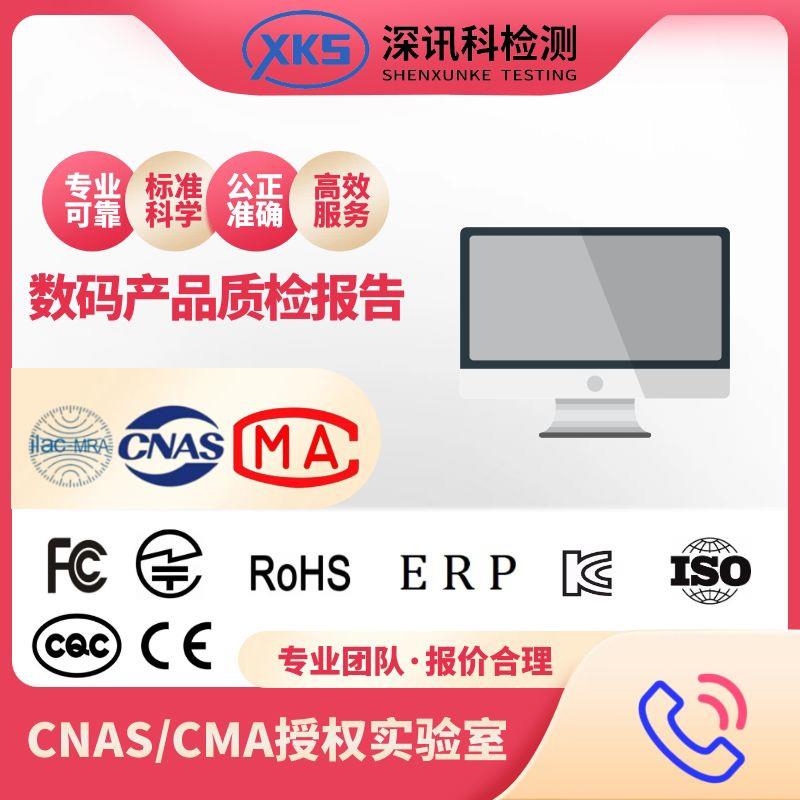Led lamp-en62471 test

summary
En62471 -- Guidelines for evaluating the Photobiological Safety of lamps and lamp systems. In particular, the exposure limit, reference measurement technology, classification evaluation and control of all electrically driven discontinuous multi frequency optical hazard sources in light radiation are detailed, including LED products, but excluding laser products with wavelength band distance between 200nm and 3000Nm
What does en62471 detect?
En60825 is mainly used for energy measurement and calculation of single wavelength light
En62471 is mainly used to measure the light of wide band and calculate the time, angle and sensitivity of human eyes and skin to light
The purpose of en62471 is to evaluate the light radiation hazards related to different lamps and lamp systems, and fully replace the requirements of IEC / en60825 on the energy level of LED products, adding the requirements of photobiology, including radiation intensity and brightness, and grading the products according to the test data, including exemption level, low hazard, medium hazard and high hazard level.
Among them, the European Union standard en62471:2008 has been implemented since September 1, 2009, and the LED part of en60825 completely failed on September 1, 2010.
1: Applicable products all lamps and lamp systems except laser. (single wavelength laser is easy to test, and ordinary lamp may be a wide band light source due to the influence of light emitter, diffuser, lens, auxiliary optical element and other devices)
2: Wavelength range tested, optical radiation with wavelength in the range of 200nm to 3000Nm
3: En62471 test parameters and object test parameters:
1. Irradiance (radiation flux divided by unit area, unit: w / m-2)
2. Irradiance (irradiance divided by field of view, which can be converted by irradiance) test object 1. UV harm to skin and eyes
3. Near UV harm to eyes (315nm-400nm)
4. Retinal blue light hazard 4. Retinal blue light hazard (small light source) 5. Retinal thermal hazard 6. Retinal thermal hazard
5. Infrared radiation hazard to eyes (780nm-3000nm) 8. Skin thermal hazard (380nm-3000nm)
4: Judgment of results 1. Continuous light: no danger; (1) Class I hazard (low risk); (2) Class I hazard (medium risk); (3) Class I hazard (high risk)
2. Pulse lamp: (1) if the radiation limit is exceeded, it shall be classified as class 3 hazard; (2) . single pulse lamps that do not exceed the radiation limit shall be deemed as non hazardous;
(3) . multi pulse lamps not exceeding the radiation limit shall be classified as continuous lamps
What is the en62471 test?
The purpose of IEC / en62471 is to evaluate the light radiation hazards related to different lamps and lamp systems, and fully replace the requirements of IEC / en60825 on the energy level of LED products, adding the requirements on photobiology, including radiation intensity, radiation brightness, etc., and grading the products according to the test data, including exemption level, low hazard, medium hazard and high hazard level.
En62471 standard
IEC / en62471 is mainly used to measure the light of wide band and calculate the time, angle and sensitivity of human eyes and skin to light
Applicable products all lamps and lamp systems except laser.
Standards for photobiosafety:
-IEC / en62471 is applicable to all lamps and lamp systems, including LEDs, incandescent bulbs, fluorescent lamps, gas discharge lamps, arc lamps and other lamps and lanterns.
-EU regulation 244 / 2009 on energy efficiency requirements for household non directional lamps also specifies that the test on UV content shall be carried out according to IEC / en 62471 (including energy saving lamps and incandescent / halogen lamps).
-CB certification of self rectifying LED lamps must include the tests of IEC 62471 and IEC TR 62471-2 to perform photobiosafety.
-According to the OSM / CTL resolution, LED lamps must be carried out in accordance with IEC / en 62471.
-Refer to IEC / en 62471 for labels of LED modules for human eye protection
L scope of application: all lamps and lamp systems (incoherent broadband electric light source, 200-3000nm)
L LED lighting products are no longer covered by the new iec60825-1 and need to be evaluated according to iec62471.

